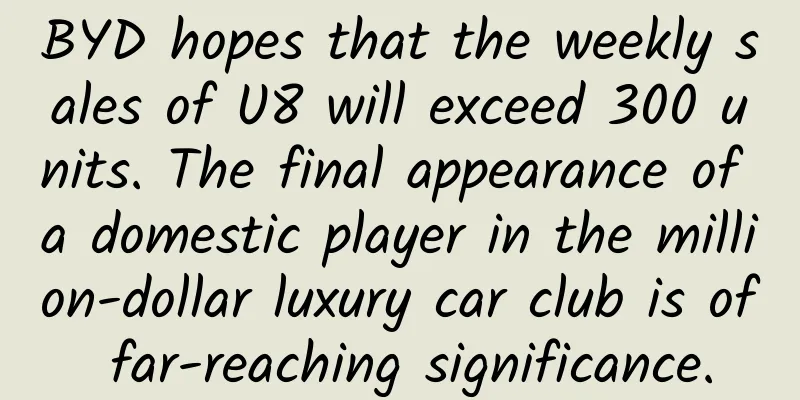The shared bike graveyard: the aftermath of crazy development

|
After nearly a year of crazy development, the development of shared bicycles has reached a bottleneck period. The various social problems it has brought about and the various hidden dangers in its development have begun to emerge. Since August this year, relevant departments have issued regulations related to shared bicycles. At the same time, local governments have also begun to plan to stop the release of shared bicycles, and soon implemented it in some cities that could not bear the burden, such as Guangzhou, Zhengzhou, and Beijing. Even if the pause button is pressed, it cannot make up for the sequelae of rapid expansion. This week, the most popular news in the field of shared bicycles was not about Ofo and Mobike going overseas again, or what honors their founders received, but an article titled "Shocking shared bicycle graveyard! Hundreds of thousands of bicycles abandoned in the wilderness without anyone to take care of them!" by Chedongxi, a subsidiary of Zhidongxi. The article reported on shared bicycle graveyards in Beijing, Shanghai and other places. Looking at those shared bicycles piled up like mountains, it was indeed shocking. Moreover, a large number of the cars are intact and can still be used on the market. Why are they buried here? This question can be divided into two levels. The first is why they gather here, and the second is why no one takes them away. The article discusses both topics. For example, why are they gathered here? The answer in the article is "after occupying the road, they were transported here by the urban management." Why no one takes them away? The answer in the article is "maybe because of the high labor cost. After all, it cost a lot of money to move them here." These answers are direct reasons and superficial problems. If we ask a deeper question, the question becomes, why do shared bikes occupy the road unscrupulously? Why can shared bikes be left there without worrying about it? Wasteland is fine, at least before it is developed, it only has its own value and will not have much use value. Roads are public spaces in society. Cars need to pay road maintenance fees when driving, and cars need to pay parking fees when parked on the roadside. Why don't shared bikes, which are obviously commercial products, bear the cost of occupying public resources? This is what I think the problem is. In April this year, I used the theory of externalities in economics to explain and discuss the relevant phenomenon: In the operation of shared bikes, the cost of occupying social public resources is not borne by the operators and users of shared bikes. This is like the manufacturing industry that caused serious environmental pollution. After the wastewater and waste gas were discharged, the consequences of environmental damage were not borne by the enterprises. An interesting comparison is that some people currently define shared bikes as "new urban garbage." Of course, the theory of externalities also provides a solution. Economists have proposed three solutions. The first is to impose taxes and subsidies to regulate the actions of economic entities; the second is the Coase theorem, if property rights are clear and transaction costs are low, externalities can be resolved through multi-party negotiations; the third is corporate mergers to reduce externalities caused by competition. Applied to shared bicycles, the first method is to collect social resource occupation fees from shared bicycle companies, just like collecting pollution control fees from companies. There is no clear policy for this at present. It is foreseeable that if such regulations are introduced, the operating costs of shared bicycles will increase, and they will eventually be passed on to consumers. The second method, which some current companies have begun to implement, is to change the so-called dockless shared bicycles into docked ones. This will further limit the convenience of using shared bicycles. If the restrictions are too strict, the advantages brought by shared bicycles will be killed. The third method is that in the current environment, the possibility of a merger between ofo and Mobike has also greatly increased, especially driven by the capital behind both parties. For example, recently, Zhu Xiaohu, an investor who has been crazy about ofo's presence, also began to say that a merger between the two is the best way. Obviously, the implementation of each solution will increase the cost of using shared bicycles. Therefore, shared bicycle companies and relevant departments need to find an "optimal solution" that can ensure the convenience of shared bicycles, not lead to an increase in usage costs, and control their excessive occupation of social resources. As a winner of Toutiao's Qingyun Plan and Baijiahao's Bai+ Plan, the 2019 Baidu Digital Author of the Year, the Baijiahao's Most Popular Author in the Technology Field, the 2019 Sogou Technology and Culture Author, and the 2021 Baijiahao Quarterly Influential Creator, he has won many awards, including the 2013 Sohu Best Industry Media Person, the 2015 China New Media Entrepreneurship Competition Beijing Third Place, the 2015 Guangmang Experience Award, the 2015 China New Media Entrepreneurship Competition Finals Third Place, and the 2018 Baidu Dynamic Annual Powerful Celebrity. |
>>: Finally back! Didi Hitch will start trial operation in 7 cities from November 20
Recommend
What happens in the body when you have diarrhea? Why can you walk a thousand miles if you hold your urine, but you can't walk an inch if you have diarrhea?
There are always moments in life when you need to...
Cool transparent full-screen design iPad concept model exposed
Recently, Chike Newman, a concept designer from L...
Douyin, Kuaishou, Xiaohongshu, and Bilibili, which one has a lower advertising ceiling?
In October, the article "Watching Douyin and...
An explosion at a firecracker factory in Guanghan, Sichuan, has injured six people
CCTV reporters learned from the scene that the fi...
Popcorn dropped from a roadside tree? Don’t eat it!
Now is the leaf-viewing season in southern my cou...
A big ship carrying a small boat? A major breakthrough in China's deep-water field! The unique skills of "Anemone No. 1"!
"Haikei No. 1" is Asia's first cyli...
New knowledge: How to counterattack and play Douyin on several mobile phones on June 11 (explaining account maintenance and PR editing + personal summary)
New knowledge: How to counterattack and play Douy...
Advertising Cases | Traditional lending and driving test industry advertising cases and data references!
Today, I would like to share with you some invest...
"Fast and Furious" 1-9 Collection Blu-ray Ultra HD Special Effects Chinese Subtitles
Young people in Los Angeles are keen on street ra...
Why is the Federal Reserve not considering raising interest rates for the time being? What is the specific situation?
Why is the Federal Reserve not considering raisin...
Even if Apple comes, it won’t work. Why is the experience of in-car operating systems far inferior to that of mobile phones?
We are in contact with operating systems all the ...
Popular Science | The "little secret" of choosing down jackets
It is another cold winter, how to keep warm in wi...









